What do you do when things turn SCARY? Two expert Transfusion Medicine docs help guide you through some tough situations.
NOTE: Continuing Education credit for this episode has expired. See below for details.

Drs Mark Fung and Jay Hudgins
Ask the Pros
Drs Mark Fung and Jay Hudgins are expert Transfusion Medicine practitioners who have years of experience dealing with these “scary” situations! They have worked through situations tough enough to make a jack-o-lantern turn green, and they have come out stronger on the other side. They are here to help learners with ideas on how to approach some seemingly impossible situations. You will hear their thoughts on things like dealing with severe blood shortages, transfusing RhD negative females when there’s no RhD negative blood to be found, ITP patients with intracranial hemorrhage, and urgent notification of an IgA deficient patient needing transfusion (and more!). Let their experience be your opportunity to learn.
Disclaimer
The opinions expressed here are just that, opinions. This educational podcast interview is not a medical consultation nor is it meant to represent the only possible options available. Please follow the guidance of local transfusion experts and regulations.

Drs Mark Fung and Jay Hudgins
Ask the Pros
Drs Mark Fung and Jay Hudgins are expert Transfusion Medicine practitioners who have years of experience dealing with these “scary” situations! They have worked through situations tough enough to make a jack-o-lantern turn green, and they have come out stronger on the other side. They are here to help learners with ideas on how to approach some seemingly impossible situations. You will hear their thoughts on things like dealing with severe blood shortages, transfusing RhD negative females when there’s no RhD negative blood to be found, ITP patients with intracranial hemorrhage, and urgent notification of an IgA deficient patient needing transfusion (and more!). Let their experience be your opportunity to learn.
Disclaimer
The opinions expressed here are just that, opinions. This educational podcast interview is not a medical consultation nor is it meant to represent the only possible options available. Please follow the guidance of local transfusion experts and regulations.

About My Guests:
Dr. Mark Fung is professor of pathology and laboratory medicine at the University of Vermont (UVM). Dr. Fung has served in various leadership capacities within the AABB and related organizations. He is the immediate past chair of the AABB Hemovigilance Committee, and a past chair of the AABB Clinical Transfusion Medicine Committee. He also serves in leadership positions in the Biomedical Excellence for Safer Transfusion (BEST) research collaborative, and in the International Collaborative for Transfusion Medicine Guidelines (ICTMG). He was the editor-in-chief for the 18th and 19th editions of the AABB Technical Manual, and is on the editorial board for the journal Transfusion.
Dr. Jay Hudgins is the medical director of the tissue and transfusion medicine service at Los Angeles County Medical Center at USC and an assistant professor of clinical pathology at Keck School of Medicine. Jay graduated from Philadelphia College of Osteopathic Medicine. He then went on to complete his training in clinical Pathology at Rutgers-Robert Wood Johnson Medical Center, followed by a transfusion medicine fellowship at The Cleveland Clinic. He Joined the faculty at USC in 2015 and has served in his current post since 2018.
Continuing Education Expired
This podcast episode offered continuing education credit for two years from its release date, but is no longer eligible for such credit.
To find Blood Bank Guy Essentials Podcast episodes with active continuing education opportunities, Click here or visit Transfusion News Continuing Education on Wiley Health Learning.
DISCLAIMER: The opinions expressed on this episode are those of my guests and I alone, and do not reflect those of the organizations with which either of us is affiliated. Neither my guests nor I have any relevant financial disclosures.
Further Reading:
- Is IgA anaphylaxis a real thing?: Sandler SG et al. The entity of immunoglobulin A-related anaphylactic transfusion reactions is not evidence-based. Transfusion 2015;55:199-204.
- Platelet transfusion practice in ITP: Goel R et al. Platelet transfusion practices in immune thrombocytopenia related hospitalizations. Transfusion 2019;59:169-176.
- Using Rh Immune Globulin after RhD-incompatible RBC transfusion: Ayache S and Herman JH. Prevention of D sensitization after mismatched transfusion of blood components: Toward optimal use of RhIG. Transfusion 2008;48:1990-1999.
- It’s ok to use group A plasma in trauma settings: Dunbar, NM et al. Safety of the use of group A plasma in trauma: the STAT study. Transfusion 2017;57:1879-1884.
Thanks to:
- Dr. Daniela Hermelin, Assistant Editor; Follow Daniela on Twitter for fantastic #blooducation!
- Samantha Chaffin, Design and content consultant
Music Credit
Music for this episode includes “Cuando te invade el temor” and “Reflejo,” both by Mar Virtual via the Free Music Archive. Click the image below for permissions and license details.




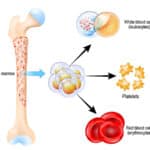

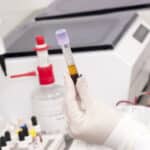



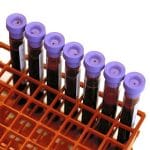

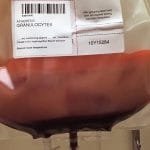
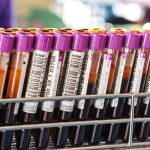
Bloody BRILLIANT! – Again.
Honored at your kind words, sir! I’ll say again: Getting really smart people to interview makes all the difference! Drs Fung and Hudgins brought so much wisdom to the table that they made my job simple.
-Joe
Loved this podcast! Thank you Dr Chaffin, Dr Fung and Dr Hudgins for such an informative conversation. Particularly interesting bit about Rh Prophylaxis in ITP. Further reading and learning for me! Massive thanks too to Dr Hermelin for promoting and steering the follow up #twitter debate and #blooducation.
Thanks so much, Tom! This episode was the brainchild of the mighty Dr. Fung, and I think it was a great idea! Mark and Jay were terrific. So glad you enjoyed it. I’m hoping to do more of the Twitter chats for future episodes to further the conversation. You are right, Daniela did a great job on that recent chat.
-Joe
Very informative. Recently I have started to listen podcast when driving back to home from work for an hour and now getting addicted.
Thank you Dr. Chaffin !
Haha! Well, I hope that the podcast helps keep you awake while driving, Ranjana! I’m honored to help you pass the time on what sounds like a long commute.
-Joe
Head bleeds in ITP or any serious bleeding at virtually any body site.
Before recommending any blood components, for which there is zero to little evidence and lots of risks, I’d recommend 1 g of tranexamic acid, for which there are boatloads of randomzied trial evidence. And increasing usage worldwide. Also dirt cheap. Repeat if needed.
Data from trauma (CRASH trials), peripartum bleeding (WOMAN trial) and in most surgical settings, including traumatic head injury ( J Intensive Care 2020 Jul 3;8:46. doi: 10.1186/s40560-020-00460-5. for example)
Use of platelets, which bedside practitioners want to give in infinite but futile doses is more likely harmful than helpful based upon both observational data and one randomized trial in head bleeds in patients taking anti-platelet agents. (Lancet, 2016, Baharoglu, et al Jun 25;387(10038):2605-2613.
Also recall that infusions of blood components, like plasma, and to a much lesser extent cryo, by virtue of all that unnecessary protein, expand the intravascular volume for many hours, which likely will make bleeding worse in many situations, such as a closed head bleed. Thus transfusing any or especially large volumes of platelets is probably a good way to make bleeding worse just based upon intravascular volume expansion and pressure. This stuff isn’t glue :).
Hello Joe,
Is there a technical issue as I can not listen this great discussion?
Thank you again for being an excellent educator!
Nusrat
Sorry, now it is on!
Thanks
Hi everyone.
Thoroughly enjoyed this one.
So, in the post-quiz, I don’t understand question #3. The answer choices are A, B or O, but the question seems faulty. Am I missing something??
Thank you,
Connie